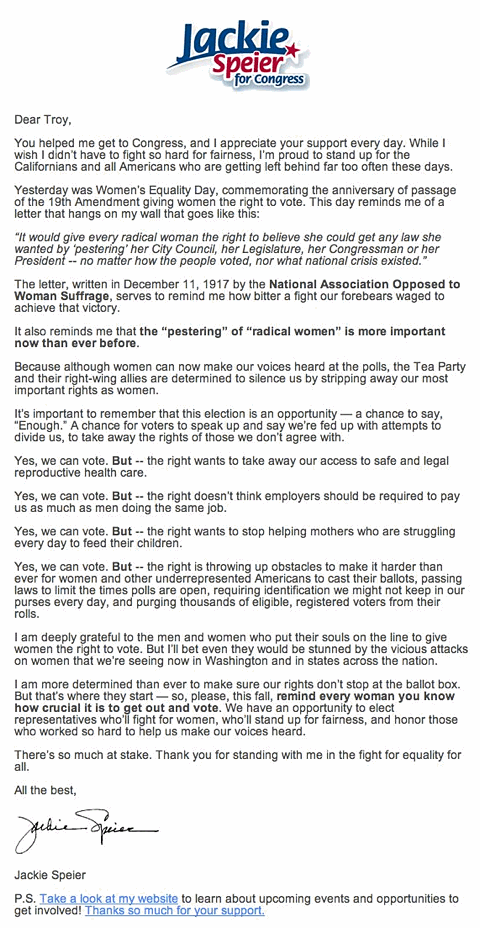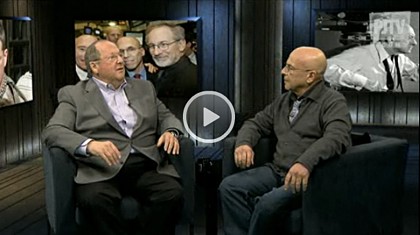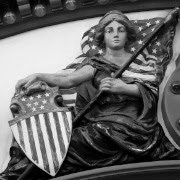Some further thoughts that I drafted a couple of days ago and have been mulling over a bit more.
In large part, what's been on my mind lately is assessing where we are and how we're faring, five years after the 9/11 attacks, and where we need to be going from here. Although overall I have tended to be an optimist, I must say my general feeling on the topic at this point in time is not especially optimistic.
On the upside, there is little question in my mind that, if we in the West possess the necessary resolve, we are every bit capable of defeating al Qaeda and similarly-minded jihadist groups. As Christopher Hitchens said on the Hugh Hewitt Show last June 27th:
In the long run, I'm perfectly certain of victory over these people. And I think in some ways it's impossible for them to win. They're too backward, they're too stupid. Their ideology is self-destructive as well as destructive. It's literally suicidal.
Mind you, I do think it's vitally important that we take very seriously the implications of the harm that jihadists clearly intend to do us should they again acquire the necessary means, and that we actively work to dismantle terror organizations and thwart their plans. As I've said before, however, I've come to be still more worried about our own state of mind than about any form of physical violence that al Qaeda and its brethren have in store for us. I sincerely hope I'm wrong about the significance of this, but it leaves me with a sinking feeling that I just can't seem to shake.
Among other things I keep asking myself: Why oh why, five years later, haven't we rebuilt at Ground Zero yet? In my previous post, I quoted James Lileks' recent comments on the matter:
If 9/11 had really changed us, there’d be a 150-story building on the site of the World Trade Center today. It would have a classical memorial in the plaza with allegorical figures representing Sorrow and Resolve, and a fountain watched over by stern stone eagles. Instead there’s a pit, and arguments over the usual muted dolorous abstraction approved by the National Association of Grief Counselors. The Empire State Building took 18 months to build. During the Depression. We could do that again, but we don’t. And we don’t seem interested in asking why.
I think architect Sherri Tracinski had it right in her July 2002 op-ed: rebuilding is an imperative for the health and survivial of our civilization.
During the war of 1812, when the British burned the Presidential Mansion, what did we do? We rebuilt the mansion, repainted the charred exterior, and called it the White House.
In the 1850s, when a fire burned the Capitol building, plans were made to rebuild it, but soon the country was split apart by the Civil War. Yet it was during the war, with limited funds and limited workers, that the Capitol was rebuilt and enlarged using the latest modern materials. During a conflict that threatened to rip the nation in two, the rebuilding of the Capitol demonstrated Lincoln's confidence that we would succeed in preserving the Union.
Today, however, America's reaction is increasingly one of passivity and resignation. We flounder in a half-hearted war because we're afraid we might suffer casualties—or worse, we're afraid we might inflict them on the enemy. We plead with our allies and our enemies for permission to invade Iraq. And when the World Trade Center site is cleared, we propose a half-hearted building campaign. We accept a slow suicide.
I want very much to see us rebuild where the Twin Towers once stood, as a symbolic affirmation of our confidence in ourselves and our will to go on. There's a plan in the works and a timeline. But in the five years since the 9/11 attacks, I've begun to wonder how serious we are about it and whether it's really going to happen.
Dragging our feet on rebuilding where the towers stood is one thing. What troubles me more deeply still is the accidental alliance of worldviews that seems to have occurred, between the Islamic fundamentalists who condemn and seek to eradicate the lifestyles of Western “infidels”, and those among the domestic left who criticize and abhor our way of life no less harshly, while unhesitatingly aligning themselves with whomever happens to be speaking out against the United States this week or the next, from theocrats such as Ahmadinejad to deeply antiliberal Latin-American thugs such as Hugo Chavez and Fidel Castro. The choice of foreign figures with whom America's domestic and foreign critics ally themselves is in fact often quite revealing.
It is repeatedly alleged that our purported objective of spreading democracy and liberty is mere pretext for more nefarious goals. Yet at times it seems to me that the greatest fear of all for some is that fostering liberal democracy just might be our actual goal, and that, worse yet, we might actually succeed at it. To be sure, American-style liberal capitalist democracy is a competitor for mindshare in the world's marketplace of governing ideas. And to some, its continued spread is just about the worst possible thing that can happen, and they seem genuinely and perhaps unsurprisingly eager to see us fail in this endeavor. The overlap between those who wish to see the United States back down and those to whom the popularization of characteristically American values and ideas about governance is abhorrent is substantial, and readily visible at any of the major anti-war protest rallys that have been held in recent years. This exhibition, which is running contemporaneously with the fifth anniversary of 9/11, the day we were deeply wounded in a way that no one has ever wounded us before, is likewise typical of the monolithic attitude and synergy of these ideas one sees in the contemporary art world. Its heroically dissenting participants are going out on a limb to express their resistance to both war and the “globalization of consumerist capitalism.” No mention of Saddam's torture chambers or mass graves to be found in such venues, nor of the liberation of women from Taliban-enforced Sharia in Afghanistan. Just gloom and self-loathing and all the necessary ingredients of suicide for the West.
At the same time that such apparent synergies of thought and their potential consequences give me a chill, I worry also about our own credulity. Whether through careful study or by accident (and I'm finding myself increasingly inclined to believe the former) jihadists and their allies seem to be playing the American left's sympathies with great virtuosity. They appear to have learned precisely the right language to use, so deftly exercising (as Ahmadinejad has in recent statements) key hot-button terms like “imperialism”, “oppression”, “hegemony”, and so forth in their rhetoric, in evidently rather successful attempts to build sympathy and justifications for their actions, that you'd almost think they had honed such skills in American universities.
It positively baffles me that people who exercise so much skepticism in dissecting and criticizing the (certainly far from perfect) actions of our own leadership seem to apply so little of that skepticism to the statements and intentions of those who openly, vocally, and clearly seek our destruction. Americans and others who credit our government with all manner of capacity for deception, vicious motives, and malfeasance, seem stunningly credulous when it comes to the rhetoric of the jihadists and their international sympathizers, and eager to believe their assertions that it's all our fault. I think there's some truth to the notion that this kind of conclusion is actually appealing and comforting to some people in a rather counterintuitive way: because if it's all our fault, instead of the being result of circumstances, actors, and ideologies beyond our control, then in theory we can make it stop. Maybe sometimes it is just less frightening to blame the parent than to confront a world of potentially grave danger and uncertainty. Unfortunately, a consequence of this kind of thinking is that in the place of assertive action, its adherents are demanding the kind of denial, appeasement, and perpetually apologetic multiculturalist pandering that, while arguably harmless enough pre-9/11, I fear can now be the end of us if we allow it to be.
So where does that all leave us? In a significant amount of danger and with a lot of serious assessment and repair work to do, I'm afraid. But it's work we absolutely need to do, I believe, because our future depends on the outcome.
As Bill Whittle phrased it in in the introduction to his 2005 essay “Sanctuary”:*
What’s worse than crawling under your beloved house and seeing the foundation's rotten with decades of termite damage?
NOT crawling under your beloved house and seeing the foundation's rotten with decades of termite damage.
Having suicidal theocratic zealots for enemies is one challenge. But if this civilization of ours is to survive, I think we need most of all to begin seriously examining some of our own seemingly suicidal tendencies and getting our house in order. We need to fully confront, understand, and treat this cancerous, deeply misguided self-loathing before it's too late.
Later in “Sanctuary”, Bill wrote:
I used to wonder why civilizations fell. No longer. I see it now before my eyes, every day. Civilizations do not fall because the Barbarians storm the walls. The forces of civilization are far too powerful, and those of barbarism far too weak, for that to happen.
Civilizations fall because the people inside the Sanctuary throw open the gates.
The most crucial battle to be fought, in the fight for this magnificent, life-affirming, fragile civilization of ours, is the battle to win hearts and minds — beginning, most importantly of all, with our own. If we fail in that endeavor, all may well be lost. But if we can find it within us to succeed, then I believe no enemy from without, however vicious and determined, can long endanger this outpost of sanity and decency that so many of us are so fortunate to call home.
* UPDATE 2009-09-08: Sadly, “Sanctuary” appears to have been a casualty of Bill's move to pajamasmedia.com. I've updated the above links to point to where the essay should be -- and, I hold out hope, will be someday -- but for now the text of it is missing in action, and can only be found in the print edition of Bill's excellent “Silent America” essay collection (which I can't possibly recommend highly enough).









